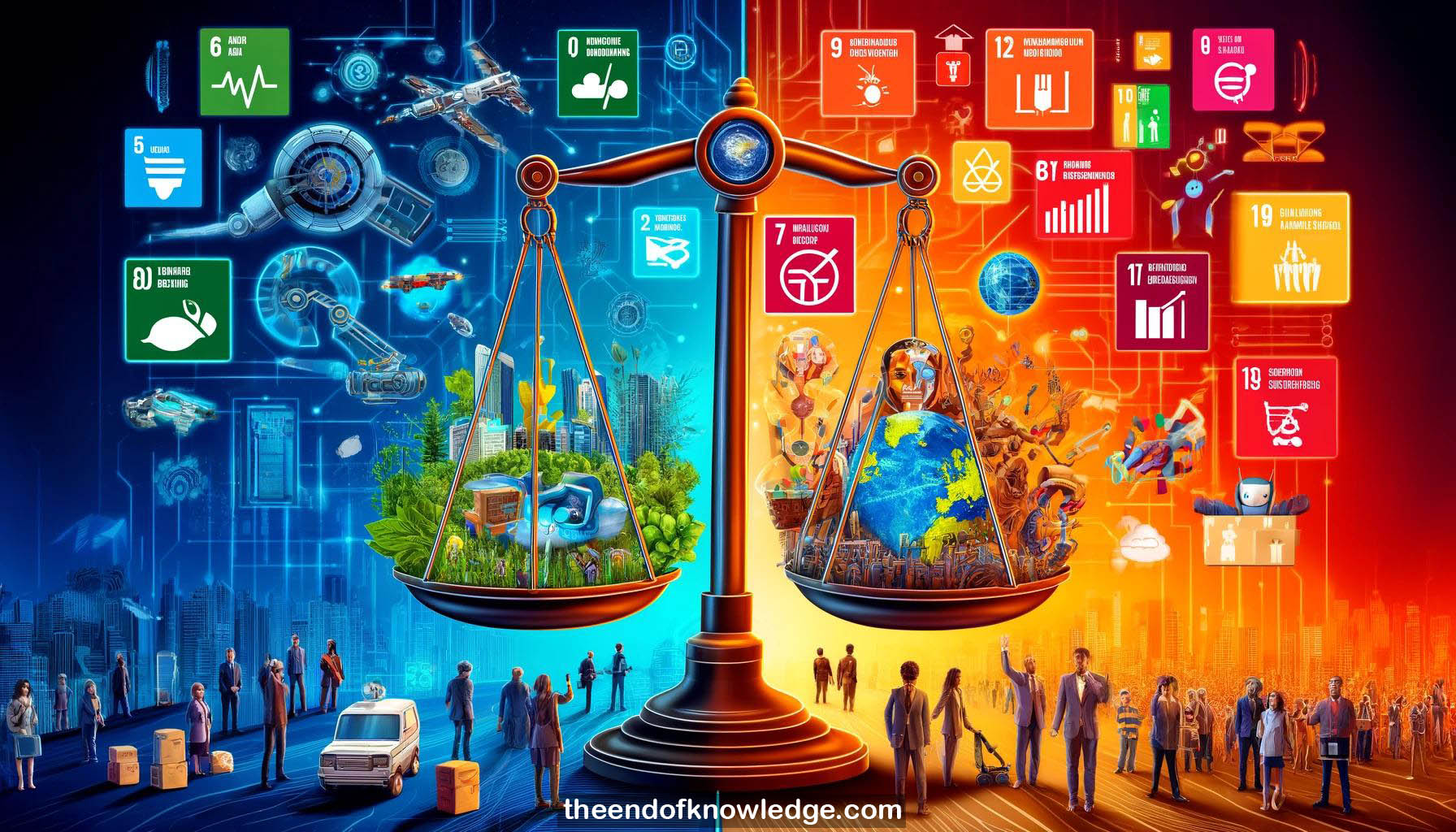 >
>
Concept Graph & Resume using Claude 3 Opus | Chat GPT4o | Llama 3:
Resume:
1.- AI can be used for social good but also poses risks that need to be addressed proactively through collaboration.
2.- AI is progressing rapidly and will likely surpass human decision-making capabilities across many domains in the near future.
3.- AI has potential to help achieve SDGs and transform society but must adhere to principles of empowerment and "do no harm."
4.- Japan developed an AI industrialization roadmap balancing economic advancement and resolution of social problems to realize "Society 5.0."
5.- UNICRI believes risks and benefits of AI must be balanced through international cooperation between public, private and academic sectors.
6.- AI could help map health risks based on environmental factors but such information could also be misused.
7.- Mobile robots are gaining autonomy but still have limitations; new paradigm emerging of robots proactively asking humans for help when needed.
8.- Potential AI risks include manipulation of information environment, malware attacks, lethal autonomous weapons, job displacement. Solutions require global collaboration.
9.- Roadmap needed to accelerate beneficial AI for SDGs while mitigating risks. Funding, capacity building, ethics training, oversight mechanisms proposed.
10.- Transparency and explainability of AI systems is a major challenge. The public lacks trust in the technology.
11.- Demonstration projects showing both value and risks of AI in an understandable way are needed to address public trust issue.
12.- UNICEF invests in AI and other frontier tech through venture fund and applies them to development challenges like mapping malnutrition.
13.- Meta (Chan Zuckerberg Initiative) aims to use AI to accelerate scientific discovery and innovation underpinning solutions to SDGs.
14.- AI is being applied for social and environmental good in areas like monitoring illegal fishing, poaching, human trafficking.
15.- Human rights can provide a framework to navigate benefits and risks of AI. Participation of affected people is key.
16.- AI development faces challenges of regime complexity (many stakeholders), pacing (tech moves faster than governance), fragmentation of efforts.
17.- Proposed solutions: 1) Global knowledge platform on AI impacts 2) Adaptive governance allowing ambiguity 3) Redesigning innovation process.
18.- Open question if AI will heighten global inequalities, e.g. via targeted advertising exacerbating unhealthy behaviors in vulnerable populations.
19.- Concern if AI will augment power imbalances between those who have the tech and data and those who don't.
20.- Difficult philosophical question posed around potential future rights of AIs if they become very advanced.
21.- Geopolitical and economic impacts of AI in global trade unclear. Idea proposed of AI as a special economic zone.
22.- Difficult to ensure AI regulations are followed worldwide, may require further empowerment of global governance institutions like UN.
23.- Risk of exponential 'winner-take-all' impacts of AI locking in inequalities for individuals, organizations, countries who adopt it first.
24.- Fundamental challenge that AI is not constrained by human values, could be hacked/misused at scale in destructive ways.
25.- Need better incorporation of shared human values into AI development, not just short-term incentives. Requires unprecedented collaboration.
26.- AI is a dual-use technology; bad actors could utilize it across borders for destructive purposes, undermining traditional governance.
27.- Window of opportunity to shape AI while it's still developing; roadmap and collaboration needed to steer it towards beneficial ends.
28.- Continued multi-stakeholder dialogues essential to hash out challenges and parameters of AI collaboration as the technology rapidly evolves.
29.- AI & ICT4D must proactively focus on global poor and address asymmetries. Over 500M children face malnourishment and lost potential.
30.- AI is emerging in a time of great global challenges around equity, rights, governance. Algorithmic fairness and accountability are paramount.
Knowledge Vault built byDavid Vivancos 2024